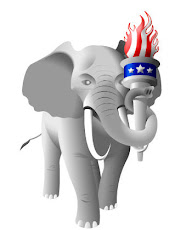In the early 20th century, Argentina was one of the richest countries in the world. While Great Britain's maritime power and its far-flung empire had propelled it to a dominant position among the world's industrialized nations, only the United States challenged Argentina for the position of the world's second-most powerful economy.
It was blessed with abundant agriculture, vast swaths of rich farmland laced with navigable rivers and an accessible port system. Its level of industrialization was higher than many European countries: railroads, automobiles and telephones were commonplace.
In 1916, a new president was elected. Hipólito Irigoyen had formed a party called The Radicals under the banner of "fundamental change" with an appeal to the middle class.
Among Irigoyen's changes: mandatory pension insurance, mandatory health insurance, and support for low-income housing construction to stimulate the economy. Put simply, the state assumed economic control of a vast swath of the country's operations and began assessing new payroll taxes to fund its efforts.
With an increasing flow of funds into these entitlement programs, the government's payouts soon became overly generous. Before long its outlays surpassed the value of the taxpayers' contributions. Put simply, it quickly became under-funded, much like the United States' Social Security and Medicare programs.
The death knell for the Argentine economy, however, came with the election of Juan Perón. Perón had a fascist and corporatist upbringing; he and his charismatic wife aimed their populist rhetoric at the nation's rich.
This targeted group "swiftly expanded to cover most of the propertied middle classes, who became an enemy to be defeated and humiliated."
Under Perón, the size of government bureaucracies exploded through massive programs of social spending and by encouraging the growth of labor unions.
High taxes and economic mismanagement took their inevitable toll even after Perón had been driven from office. But his populist rhetoric and "contempt for economic realities" lived on. Argentina's federal government continued to spend far beyond its means.
Hyperinflation exploded in 1989, the final stage of a process characterized by "industrial protectionism, redistribution of income based on increased wages, and growing state intervention in the economy."
The Argentinean government's practice of printing money to pay off its public debts had crushed the economy. Inflation hit 3000%, reminiscent of the Weimar Republic. Food riots were rampant; stores were looted; the country descended into chaos.
And by 1994, Argentina's public pensions - the equivalent of Social Security - had imploded. The payroll tax had increased from 5% to 26%, but it wasn't enough. In addition, Argentina had implemented a value-added tax (VAT), new income taxes, a personal tax on wealth, and additional revenues based upon the sale of public enterprises. These crushed the private sector, further damaging the economy.
A government controlled "privatization" effort to rescue seniors' pensions was attempted. But, by 2001, those funds had also been raided by the government, the monies replaced by Argentina's defaulted government bonds.
By 2002, ".government fiscal irresponsibility. induced a national economic crisis as severe as America's Great Depression."
In 1902 Argentina was one of the world's richest countries. Little more than a hundred years later, it is poverty-stricken, struggling to meet its debt obligations amidst a drought.
We've seen this movie before. The Democrats' populist plans can't possibly work, because government bankrupts everything it touches. History teaches us that ObamaCare and unfunded entitlement programs will be utter, complete disasters.
Today's Democrats are guilty of more than stupidity; they are enslaving future generations to poverty and misery. And they will be long gone when it all implodes. They will be as cold and dead as Juan Perón when the piper must ultimately be paid.
References:
A tear for Argentina's pension funds;
ARGENTINA'S experience with private pensions offers a sobering lesson. Four years of recession and its worst financial crisis in history have brought Argentina, the world's sixth richest country in 1902, to its knees a hundred years on.
A quarter of the Argentine population is unemployed. Over half the population is now officially below the poverty line. Rioters loot supermarkets. A people, once proud of eating the best beef in the world, now fight over carcasses of cows when cattle-trucks overturn. The exchange rate has gone from one peso to one US dollar — fixed for over a decade under the convertibility law — to over three pesos to the dollar: Argentines' savings have been cut by two-thirds in five months. The government has defaulted on its $150-billion debt. Bank deposits have been frozen since December and the government now proposes to give depositors long-term peso-denominated government bonds in lieu of their US dollar deposits.
Inflation in Argentina;
For most of the last fifty years, Argentina has vied with other South American countries and a few countries in other parts of the world for the dubious honor of having the highest inflation rate in the world. As is always the case with rapid inflation, the price increase in Argentina was fueled by rapid expansion of the money supply. The seigniorage earned from monetary expansion served the needs of the government as a method of taxation that was difficult to avoid and politically easy to enact.
Argentina, like many other chronic-inflation economies, went through repeated cycles of hyperinflation followed by attempts at stabilization. A typical cycle in such an inflationary economy begins with acceleration of money creation to accommodate the government's budgetary needs. As inflation accelerates, political pressure to reduce inflation builds, leading to an eventual "monetary reform." Such reforms usually include the introduction of a new currency (which is convenient since inflation has usually moved the nominal prices of goods and services into the thousands, million, billions, or even trillions of units of the old currency) and promises on the part of the government (which is in charge of the budget) and the central bank (which is in charge of issuing money and is often under direct control of the government) to follow rules leading to slower monetary growth in the future.
The United States of Argentina
Could it happen here? The U.S. certainly has very different political traditions from Argentina and more barriers to a populist-driven rape of the economy. On the other hand, events in some regions would make Juan Perón smile wistfully. California runs on particularly high taxes, uncontrollable deficits, and overregulation with a vastly swollen bureaucracy while the hegemonic power of organized labor prevents any reform. Thankfully, the state has no power to devalue its currency, still less to freeze bank accounts or seize pension funds, and businesses can still relocate elsewhere. But in its social values and progressive assumptions, California is close to the Democratic mainstream, which now intends to impose its ideas on the nation as a whole. And at over 60 percent of GDP, U.S. public debt is already higher than Argentina’s.
Kudos to Jews for the Preservation of Firearms Ownership.















1 comment:
We forget that during the early 20th century, the progressives were the "elite" in government and academia. The idea that technical means, and government control were sufficient to "fine tune" society into perpetual prosperity and universal wealth was widely accepted. These ideas still animate the political discussion in the US.
We also forget that the most important change in Argentina is not in the economic capital, but in the moral and intellectual capital that was destroyed by the headlong rush to "utopia". The basic idea of the progressives is that my progress can come at someone else's expense through government coercion. This idea is morally bankrupt and destroys civility. It also turns politics into a life-or-death struggle for survival.
Not only CAN it happen here, it WILL happen here, if we do not abandon the ideas that it is based on.
I would argue that the only thing that saved the US from a similar fate was the genius of our constitution, which greatly slowed the ability of progressives to "make progress" during their heyday in the 30's.
Post a Comment